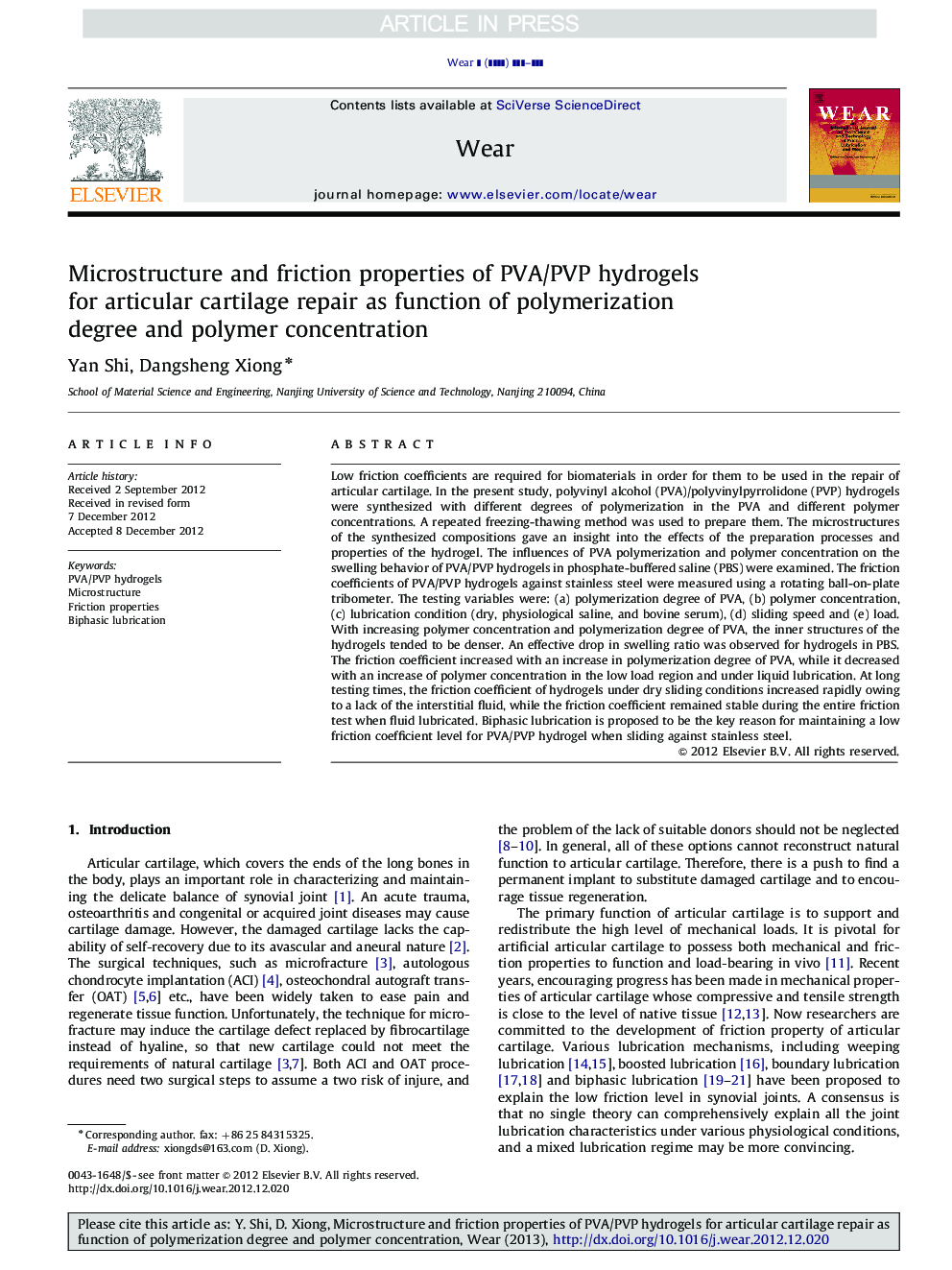| کد مقاله | کد نشریه | سال انتشار | مقاله انگلیسی | نسخه تمام متن |
|---|---|---|---|---|
| 7004701 | 1454997 | 2013 | 6 صفحه PDF | دانلود رایگان |
عنوان انگلیسی مقاله ISI
Microstructure and friction properties of PVA/PVP hydrogels for articular cartilage repair as function of polymerization degree and polymer concentration
دانلود مقاله + سفارش ترجمه
دانلود مقاله ISI انگلیسی
رایگان برای ایرانیان
کلمات کلیدی
موضوعات مرتبط
مهندسی و علوم پایه
مهندسی شیمی
شیمی کلوئیدی و سطحی
پیش نمایش صفحه اول مقاله

چکیده انگلیسی
Low friction coefficients are required for biomaterials in order for them to be used in the repair of articular cartilage. In the present study, polyvinyl alcohol (PVA)/polyvinylpyrrolidone (PVP) hydrogels were synthesized with different degrees of polymerization in the PVA and different polymer concentrations. A repeated freezing-thawing method was used to prepare them. The microstructures of the synthesized compositions gave an insight into the effects of the preparation processes and properties of the hydrogel. The influences of PVA polymerization and polymer concentration on the swelling behavior of PVA/PVP hydrogels in phosphate-buffered saline (PBS) were examined. The friction coefficients of PVA/PVP hydrogels against stainless steel were measured using a rotating ball-on-plate tribometer. The testing variables were: (a) polymerization degree of PVA, (b) polymer concentration, (c) lubrication condition (dry, physiological saline, and bovine serum), (d) sliding speed and (e) load. With increasing polymer concentration and polymerization degree of PVA, the inner structures of the hydrogels tended to be denser. An effective drop in swelling ratio was observed for hydrogels in PBS. The friction coefficient increased with an increase in polymerization degree of PVA, while it decreased with an increase of polymer concentration in the low load region and under liquid lubrication. At long testing times, the friction coefficient of hydrogels under dry sliding conditions increased rapidly owing to a lack of the interstitial fluid, while the friction coefficient remained stable during the entire friction test when fluid lubricated. Biphasic lubrication is proposed to be the key reason for maintaining a low friction coefficient level for PVA/PVP hydrogel when sliding against stainless steel.
ناشر
Database: Elsevier - ScienceDirect (ساینس دایرکت)
Journal: Wear - Volume 305, Issues 1â2, 30 July 2013, Pages 280-285
Journal: Wear - Volume 305, Issues 1â2, 30 July 2013, Pages 280-285
نویسندگان
Yan Shi, Dangsheng Xiong,